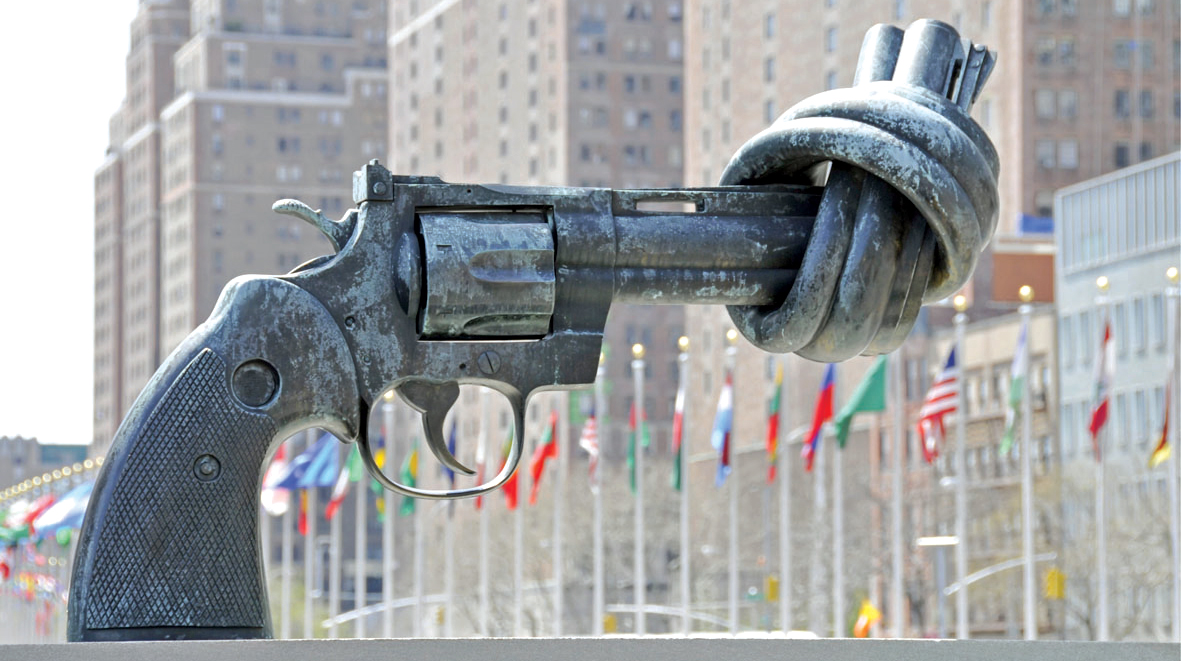

When the UN declared October 2 as the International Day of Non-Violence in a resolution on 15 June 2007, as an occasion to disseminate the message of non-violence as espoused by Mahatma Gandhi — who crafted a refreshingly hopeful global political discourse based on non-violence and compassion — through education and public awareness, it was a reaffirmation of the eternal relevance and magnetism of peace.
Come to think of it, is peace just an absence of conflict or war? Not at all; rather peace has everything to do with a radical shift in human consciousness whereby any potential or possibility of violence is rooted out of the world by enabling an environment that fosters cooperative, tolerant and harmonious coexistence of diverse cultures, ethnicities and political and religious beliefs.
And, for all practical purposes, we need to quantify peace in a world that is prone to violence at multiple levels and in varying degrees of complexity, as any data-driven measurement of peace could offer great insights. One such report, the 2020 Global Peace Index, exposes a world where the conflicts and crises that obstructed growth and development over the past decade continue to bog us down despite global efforts towards achieving peace. The report indicates an average 0.34 per cent decline in international peace; and this is the ninth time in the last 12 years that global peace has suffered setbacks.
Hopefully, though, last year saw as many as 81 countries improve the state of peace, even as 80 countries logged deteriorations. However, the fact that the average level of global peacefulness recorded a 2.5-per cent deterioration since 2008 is a cause for concern. And, conflicts derail economies. Last year alone, the global economic impact of violence was pegged at $14.5 trillion in purchasing power parity terms, which amounts to 10.6 per cent of global GDP.
According to The Institute for Economics and Peace — an independent think tank working to promote global peace as a positive, achievable and tangible measure of human well-being and progress — that releases the annual Global Peace Index, peace is crucial to not just achieving the targeted levels of cooperation, inclusiveness and social equity at the international level that can ensure a better life for all, but to empowering the very institutions that are established to ensure peace, security and development.
Yet another organisation dedicated to peace, security and vibrant economy is the Economists for Peace and Security, an international network of 13 affiliated organisations spearheading strategic economic analyses and impactful action. All such organisations share a common goal: contribute to the creation of a world where people feel safe, their needs are met and there is equitable distribution of resources by working with governments on effective policy formulations so that the current and future generations get to live in beautiful, promising world.
The Sultanate, which improved its ranking in the Global Peace Index 2020 and secured the fourth spot in the MENA region, has been advocating a peaceful world order ever since the late HM Sultan Qaboos bin Said ascended to the throne in 1970. Under His Majesty’s leadership, Oman commanded global respect and appreciation as an effective peace broker in the Middle East. His Majesty Sultan Haitham bin Tarik too envisions a conflict-free world; and in his first address to the nation His Majesty stressed on the continuation of the country’s foreign policy fundamentals that are based on peaceful coexistence and friendly relations with nations, non-interference in the internal affairs of other countries and international cooperation in various spheres, among others. The focus, His Majesty emphasised, will be on contributing to the resolution of disputes by peaceful means.
SARNGA DHARAN NAMBIAR
Oman Observer is now on the WhatsApp channel. Click here



